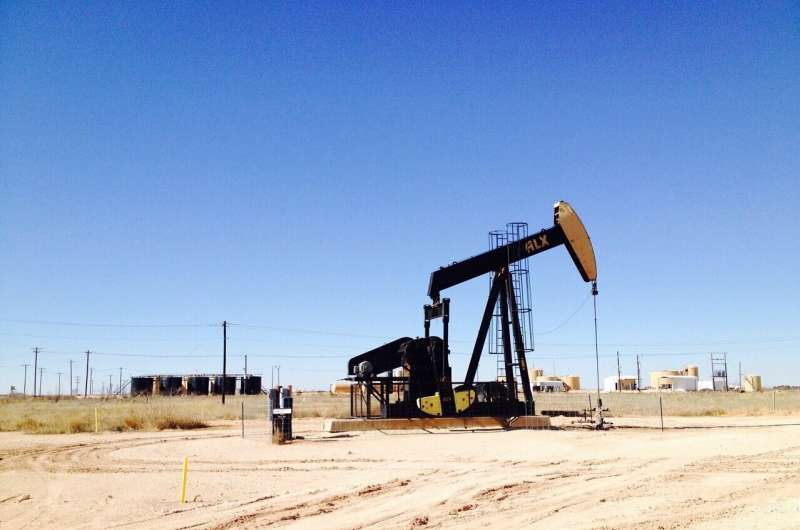Credit: Pixabay/CC0 Public Domain
According to a new study from the University of Calgary, there could be a link between oil and gas operations and health risks for pregnant women and their babies in those areas.
"There is very little research about fracking as it relates to the health of pregnant people and children living near these sites," Amy Metcalfe, a co-principal investigator and associate professor in obstetrics and gynecology at the university's Cumming School of Medicine, said.
"Our study found the rate of spontaneous preterm deliveries—birth before 37 weeks—increased significantly relative to the number of fracturing sites within 10 kilometers of their home."
A preterm baby has added risk of developing neurodevelopmental difficulties and having physical disabilities and behavior problems, like autism and cerebral palsy.
The study, which looked at five years of data, found that pregnant women who lived near 100 or more fracking operations had a 11.4% chance of early delivery while those who lived by one to 24 operations had a 7.4% chance.
However, Metcalfe said the link between fracking and preterm births isn't definite and a second study is currently underway examining data from the area in Alberta with the most fracking activity and an area with the least.
"We can't say from this work that fracking causes adverse birth effects. We can say they are more likely to occur in proximity to that, but there's really more research that needs to be done to look at causal mechanisms why this would happen," she said.
"It would be a weird coincidence if it wasn't that, but it's not something we're able to assess from this particular study."
Metcalfe added that she was prepared for the reactions the study would engender.
"Fracking is politically controversial, right? There's groups on both sides that have very strong opinions and, inevitably by doing work in this area, someone's going to be (ticked) off."
©2022 New York Daily News.
Distributed by Tribune Content Agency, LLC.





















